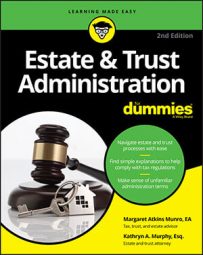When searching for an attorney to help you with your estate or trust, you may be wondering, where’s the best place to look? Unfortunately, you can’t rub a magic lamp and ask for an attorney to appear, but you can do some investigative work on your own to uncover one that’s a good match for you. Check out the following resources when searching for an attorney:
Phone directory or search engine: Your first thought may be to rush to your phone directory and start flipping through the listings, or turn on your computer and begin a search. Chances are good you’ll see pages and pages of attorneys listed. You’ll probably notice multiple display ads touting this or that firm’s expertise with various types of law.
Although you shouldn’t ignore the phone book (or any other form of advertising) when finding an attorney to assist you, don’t rely on this information entirely. No one is checking the validity of the claims being made in advertising, and anyone with a law degree can hang out a shingle stating that she concentrates in this area. Just because someone says they’re competent doesn’t mean that they are.
Martindale-Hubbell: This database lists most lawyers in the United States, as well as many of those in foreign countries; we’re not sure that we’d consider using an attorney who wasn’t listed in Martindale-Hubbell. Not only can you search for attorneys and law firms by practice type (you want Trusts and Estates or Wills and Probate) and location, but you can also check out the peer rankings.
Local, county, and state bar associations: Bar associations all have lawyer referral services, which match you with an attorney in your region whose law practice focuses on the area you request. Referrals are free and made on a rotating basis. Your first half-hour appointment with the attorney is typically billed at a much-reduced rate.
Personal references: You may already know someone who’s been in charge of someone’s estate or trust, but you’re just not aware of it. Ask people you trust where you work, within your family, or at your place of worship if they’ve personally worked with an attorney on estate or trust matters and whether they were satisfied with the service they received.
*Referrals from other professionals or within law firms: You may already be working with a tax pro or an investment advisor who may have the name of an attorney whom they know to be competent and reasonable. Or you may be the client of a large firm that practices in many areas, even if the attorney you usually employ doesn’t do trust and estate work.
Generally, referrals from other professionals are good ones — after all, the professional reputation of the person who makes the referral is as much on the line as that of the person being recommended. Referring a nonqualified person doesn’t benefit anyone.

